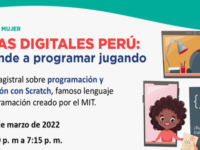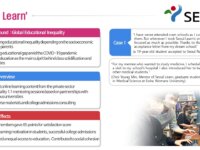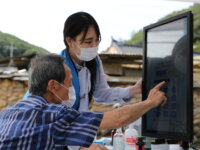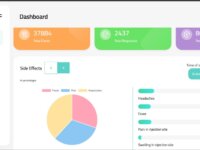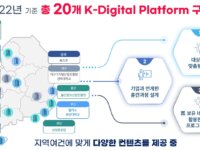Niñas Digitales Peru inspires girls aged 8 to 17 in science and technology careers, addressing the underrepresentation of women in these fields. The program focuses on developing digital and technological skills, offering free Scratch Jr programming virtual workshops to girls nationwide and guiding them in programming digital stories. The goal is to inspire and equip girls for active engagement in crafting compelling narratives, fostering their participation in the digital world.
Case Study Library
Where innovations are collected and shared to disseminate and replicate good ideas

Innovations:
0
This website, as well as any data and map included herein, are without prejudice to the status of or sovereignty over any territory, to the delimitation of international frontiers and boundaries and to the name of any territory, city or area.
Innova FOSIS created a new way of designing public policies that opened up public problems to solutions from civil society, the private sector, and academia. It allows a space within the state to test solutions on a small scale, through the implementation of learning pilots. It is an open innovation competition, followed by a pilot model for learning management and finally a mechanism for scaling up the best solutions to public policy.
'Seoul Learn' is a project that provides equal educational opportunities to the vulnerable population that has difficulties in accessing educational resources due to socioeconomic reasons. Educational inequality in Korea has been identified as the main culprit behind generational poverty. The project offers various educational services via public platforms to prevent education from causing inequalities.
Since its inception in 2020 for the purpose of realizing a digitally inclusive society, the Digital Competency Center Project has been providing digital competency training for citizens to enjoy the benefits of digital technologies and services as their lives and socioeconomic activities are rapidly digitalized. Thanks to the innovation, any person in Korea can visit their local Digital Competency Center for a free, hands-on training programmes to foster skills for using mobile or digital…
The Intergovernmental Network and Competition for regulatory reform was designed to provide a driving force for regulatory reform and for mutual learning between local governments. It moves away from existing top-down regulatory innovation and rather motivates bottom-up regulatory reform policy, enables mutual learning of best practices, and allows local governments to benefit. Also, the final beneficiaries of the Network are citizens and businesses, as when regulatory innovation increases, so…
The Government of Ekiti State is working with the Massachusetts Institute of Technology Governance Lab (MIT/GOVLAB) and has developed a community-based reporting system called “E-Surv”. E-Surv enables the participation of community members in public health surveillance by reporting public health events/emergencies, to activate a time-efficient government-led responses. This E-Surv which has been piloted in the State will create an early warning system for disease surveillance and laboratory…
The Korean government recently piloted the K-Digital Platform (KDP) to enhance national digital literacy and foster manpower suitable for digital convergence as digital transformation and low-carbon economy transition accelerated in all areas of the labor market. This is to strengthen the digital capabilities of various consumers, including workers, young job seekers, and the self-employed, and to preemptively and systematically respond to structural changes in future industries.
Marea Digital allows citizens to report local problems to the government, as well as local initiatives that are working for the communities’ well-being. Contrary to similar kind of initiatives, it’s innovative because it uses tech to allow the citizens to aggregate data about their communities’ problems, but also includes an offline strategy for the local government to design solutions with the citizens to solve the problems reported, fostering dialogue and collaboration to solve…
Case Study
Trusted Official Statistics for Good Governance and Evidence Based Decision Making in Vanuatu
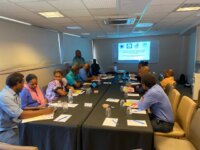
The Parliament of Vanuatu has struggled to fulfil its legislative, budget, oversight, and representation functions due to limited capacity to utilise trusted statistics. The Vanuatu Bureau of Statistics addressed this capacity gap through targeted training with Members of Parliament (MPs) and parliamentary civil servants to improve policy making. This is the first focused effort in Vanuatu to introduce data for sustainable development monitoring to MPs with the aim of enhancing good governance.
Survey figures spoke an alarming truth about a lack of awareness in the public of the risks of the flu and Covid-19, especially when they were circulating at the same time, alongside the essential protection that the vaccines provide. This meant that there was a need for a tool that provided instant access to a trusted voice (the NHS) to cut through misinformation and confusion caused online and to encourage vaccination. The 'NHS Winter Vaccines Virtual Helper' was developed to become that tool.

